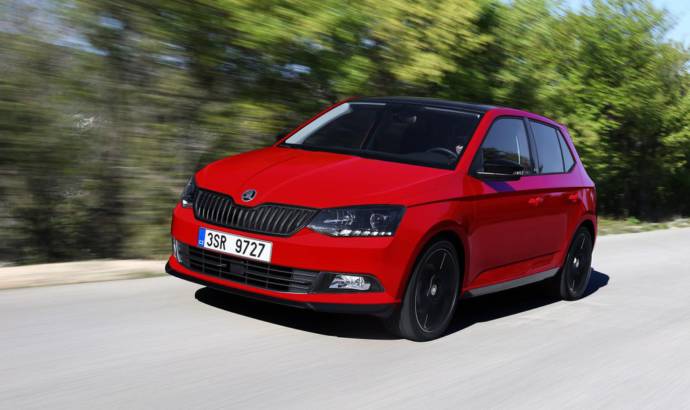Skoda is updating the current Fabia range with the introduction of the new 1.0 TSI engine, found on most of Volkswagen’s new cars.
Thanks to an increase in injection pressure to 250 bar, both power variants of the new 1.0-litre engine offer better driving performance than the 1.2-litre engines that have been used up to now and they also achieve a reduction in fuel consumption of up to 6 per cent.
The new 1.0 TSI three-cylinder engine also impresses with its sporty and dynamic sound. With its compact construction and due to its lightweight aluminium crankcase, the engine weighs ten kilograms less than the 1.2-litre engine that has been used to date.
The aluminium pistons and the connecting rods are so well balanced that the engine runs in a particularly smooth and refined manner with very little friction. A balancing shaft is therefore unnecessary. This saves on weight and helps to reduce fuel consumption and CO2 emissions.
The power output of the Fabia 1.0 TSI with manual five-speed transmission is 95 PS. Torque remains unchanged at 160 Nm, yet the driving performance has been improved.
Compared to the 1.2 litre engine with four cylinders used to date, the top speed has increased by 2 mph to 115 mph (Skoda Fabia Estate: from 115 to 116 mph) and the acceleration from 0 to 62 mph has improved by 0.3 seconds to 10.6 seconds (Skoda Fabia Estate from 11.0 to 10.8 seconds).
The engine’s tractability from 37 to 62 mph and from 50 to 75 mph is identical to its predecessor. The fuel consumption and emissions of the hatchback and Estate, on the other hand, have improved considerably from 61.4 mpg (105 g CO2/km) to 65.7 mpg (99 g CO2/km).
Just like its 1.2-litre predecessor, the more powerful 1.0-litre engine with manual six-speed transmission delivers 110 PS. However, its torque has increased from 175 to 200 Nm. Acceleration from 0 to 62 mph is achieved in 9.5 seconds.
In the manual versions of the hatchback and Estate, the fuel consumption and emissions of the three-cylinder with 110 PS are now 64.2 mpg (101 g CO2/km). For the DSG-transmission versions, fuel consumption has improved in both variants to 62.8 mpg (104 g CO2/km).



